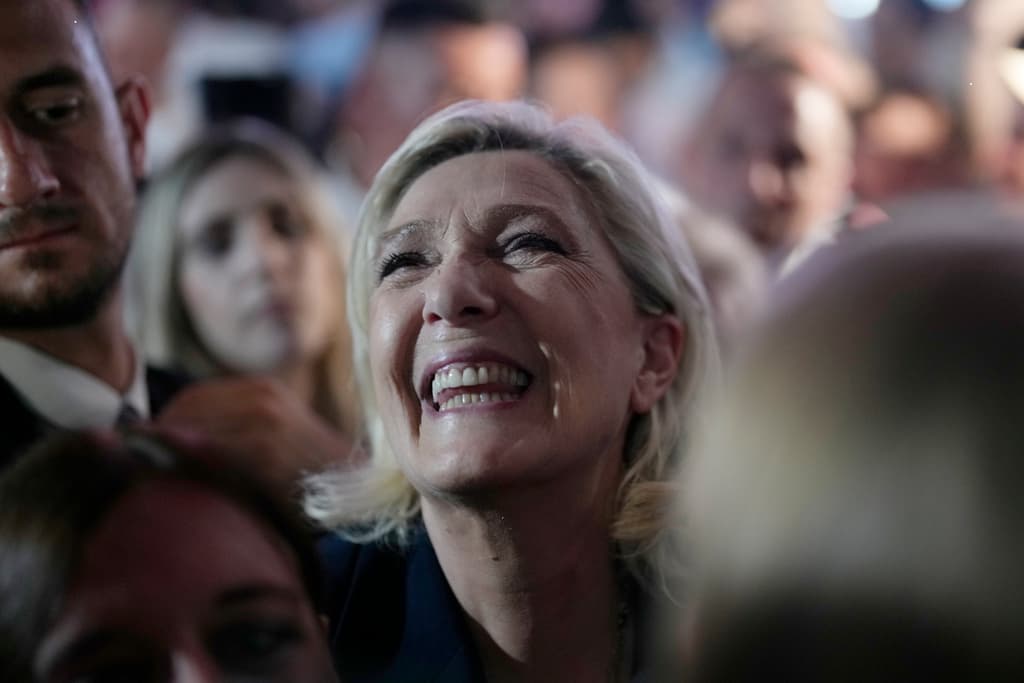The first round of the parliamentary election in France means a major success for the far-right party National Rally (RN) – which becomes the largest party with just over 29 percent.
But the left-wing alliance NFP is close behind with 28 percent, paving the way for an uncertain second round.
President Emmanuel Macron's party RE gets 20 percent in the first round, according to preliminary figures from the Ministry of the Interior.
It was Macron who surprised by dissolving parliament and calling new elections after the setback in the European Parliament election. It didn't go much better for his candidates this time, and he is now being criticized for playing recklessly high.
Democracy has spoken. We need an absolute majority so that (party leader) Jordan Bardella can be appointed prime minister in a week, said National Rally's front figure Marine Le Pen at an election meeting in her constituency Hénin-Beaumont.
If the result for the traditional, shrinking right-wing party Republicans (LR) is included, where some candidates want to cooperate with National Rally, the support rises to 33 percent, according to Le Monde.
Calling for unity
Macron urged voters and parties during the election evening to rally around candidates who can defeat National Rally's representatives in the second round on July 7. Then, the final distribution of the 577 seats in parliament will be decided.
But one of the leaders of the parties in NFP, Socialist leader Olivier Faure, perceives Macron as not unequivocally giving his support to NFP, but only on certain conditions. Macron should think again, according to Faure.
Now it's their (Macron's party) turn to make sure the far-right cannot govern, said Olivier Faure to several thousand listeners on Place de la République in Paris, reminding that the left has given Macron its support in previous, decisive elections.
The result paves the way for an uncertain outcome of the second round of the election. For an absolute majority, 289 seats are required, and RN is still expected, with the support of some of LR's candidates, to have a small chance of getting there. If that happens, Emmanuel Macron's room for maneuver as president would decrease.
If there is no clear majority in parliament, the country will be difficult to govern, which has already sent shivers down the spine of financial markets.
Voter turnout increased significantly
In the first round, 75 seats were secured, according to the Ministry of the Interior. They were taken by candidates who received over 50 percent of the votes. 37 of them are from RN, 32 from the left-wing alliance.
In the second round, it will be, on paper, a battle between three candidates in over 300 districts. In six districts, it will be between four candidates.
Voter turnout increased significantly compared to the 2022 election. Almost 67 percent of eligible voters participated, up from 47 percent, according to preliminary figures.
Facts: Preliminary result
TT
The preliminary result presented by the French Ministry of the Interior on its website early on Monday morning shows that the result between RN and NFP is narrowing, compared to what the exit polls showed.
RN gets, according to the Ministry of the Interior, 29.2 percent, compared to 28 for NFP and 20 percent for President Macron's party RE. The old right-wing party Republicans (LR) gets 6.5 percent support.






